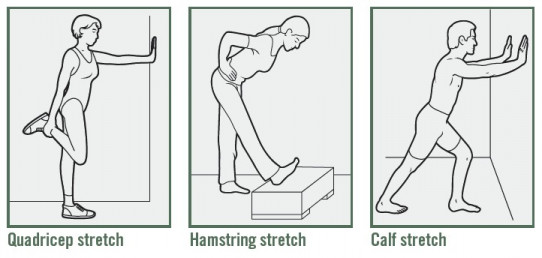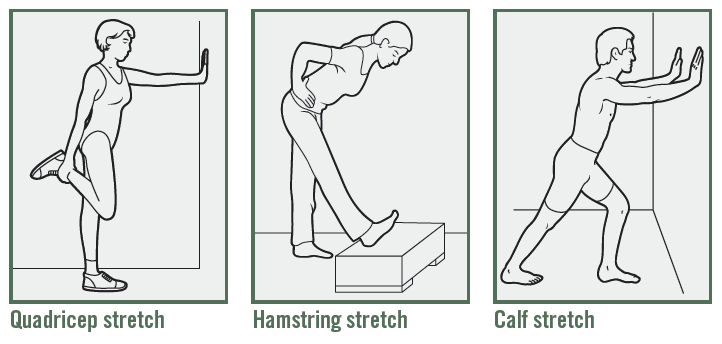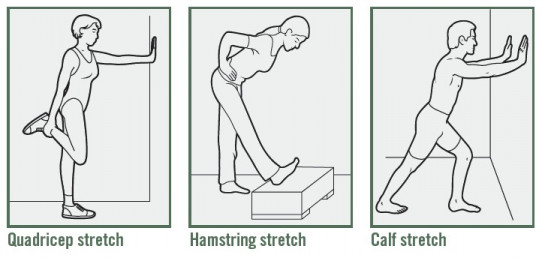In a Pickle and Looking for a New Summer Activity?
Try Pickleball, the Country’s Fastest-Growing Sport
Tired of the same ‘ole routine every summer but find yourself in a pickle and looking for a new summer activity? Well, according to American Council on Exercise (ACE), you might want to consider pickleball.
As everyone from your next-door neighbor to ACE will attest, pickleball is extraordinarily popular. Its rapid rise to ubiquity can be attributed to a number of factors, ranging from easily learned rules and minimal equipment needs to intergenerational appeal and abundant opportunities for socializing.
This blend of badminton, tennis and table tennis can be adjusted to suit the intensity and competitiveness of the players, making it simple enough for beginners but fast-paced enough for more fit or skilled participants.
All of which is to say that if you haven’t yet considered picking up a pickleball paddle and the light, whiffle-like plastic ball, summer 2022 might be the perfect time to do so.
“Pickleball doesn’t require the skill of tennis, so it is easily adapted by most, and provides all the benefits of movement, including calorie burning and enhanced functional capabilities,” says Dr. Cedric Bryant, ACE president and chief science officer.
Already a favorite sport in retirement communities, pickleball has swelled to include more than 4.8 million players in the U.S. – almost double the number from five years ago – earning it the title of fastest-growing sport in 2021 and 2022. According to the Sports and Fitness Industry Association, the spike has been fueled by people ages 54 and younger looking for a friendly yet competitive and lively sport.
“People who play are generally having so much fun they don’t realize how much exercise they’re actually getting,” says Laura Gainor, spokesperson for the USA Pickleball Association.
At 44 x 20 feet, the pickleball court is one quarter the size of a tennis court, so it’s easier to keep the ball in play and achieve a brisk workout. According to ACE, pickleball may provide just what many middle-aged and senior adults are seeking – a safe and effective workout that yields long-term benefits and encourages lifelong participation.
A small research study recently conducted by the organization among people ages 40 to 85 showed that playing four 15-minute pickleball matches three days each week meets exercise intensity guidelines for improving and maintaining cardiorespiratory fitness. Study authors reported the positive impact on cardiometabolic risk factors, with participants experiencing favorable changes in cholesterol levels, systolic and diastolic blood pressure, and peak oxygen uptake after six weeks.
The smaller court also benefits older people or those who have problems with their joints, because less running is needed, resulting in less wear and tear on the joints. One cautionary note: Experts advise learning proper technique to prevent falls. As always, be sure to check with your healthcare provider before beginning any new physical activity.
“Take a few lessons to get started, and you’ll quickly ramp up,” assures Gainor. “After three to five games, you’ll have a very good understanding of how to play, and will become addicted to it shortly after!”
Take It Outside: Keep Moving This Summer
There’s no one-sport-fits-all approach, so if pickleball doesn’t appeal, find your inspiration in one of these activities, spanning the spectrum from low exertion to highly energetic:
- Stroll through farmers’ markets or art fairs
- Go produce picking at a local orchard
- Forest bathe – immerse yourself in nature at a forest preserve
- Gardening – remember to bend from your knees and waist rather than your back
- Swim – use a variety of strokes to limber up your whole body
- Disc golf – a low-impact way to challenge your coordination
- Yard yoga – take your mat and routine outdoors
- Hike, jog, run or cycle on an outdoor trail
- Kayaking – for a vigorous upper body workout
- Stand-up paddleboarding or Boga – challenging, board-based water workouts
Sources: American Council on Exercise, American Heart Association, USA Pickleball Association

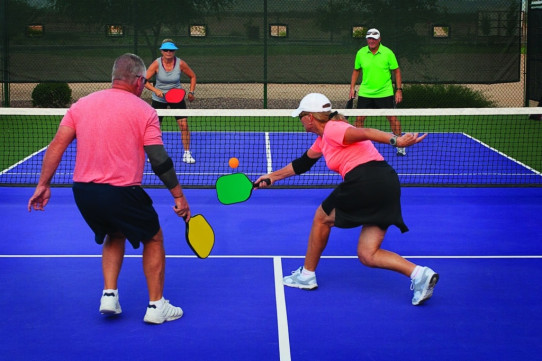


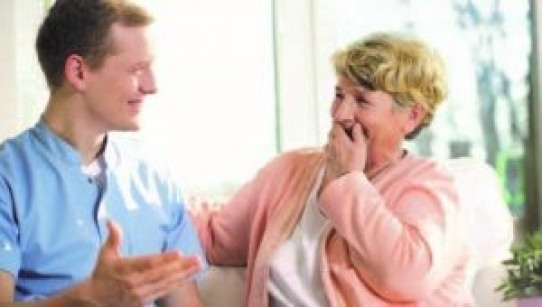
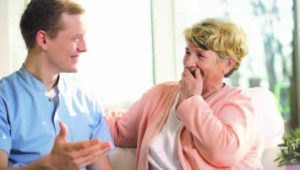
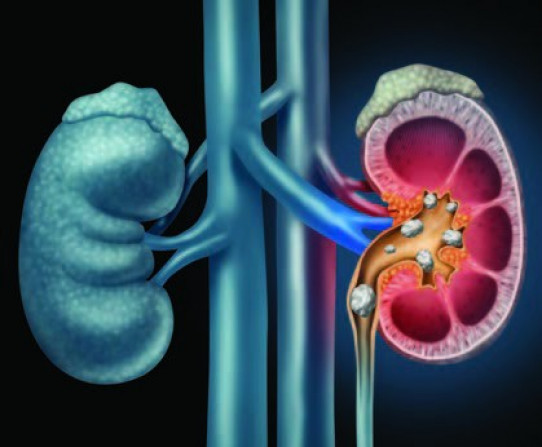
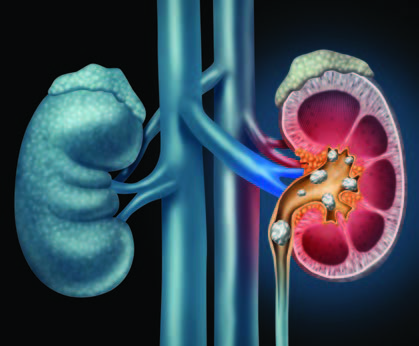

 What are the newest guidelines for measles vaccinations?
What are the newest guidelines for measles vaccinations?
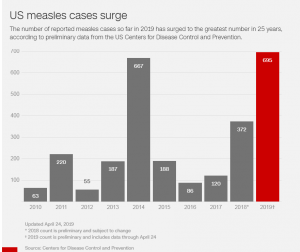 Between 2% and 5% of people do not develop measles immunity after the first dose of vaccine for a variety of reasons. The second dose is to provide another chance to develop measles immunity for people who did not respond to the first dose.
Are there any situations in which more than 2 doses of MMR are recommended?
There are two circumstances when a third dose of MMR is recommended, according to ACIP.
Between 2% and 5% of people do not develop measles immunity after the first dose of vaccine for a variety of reasons. The second dose is to provide another chance to develop measles immunity for people who did not respond to the first dose.
Are there any situations in which more than 2 doses of MMR are recommended?
There are two circumstances when a third dose of MMR is recommended, according to ACIP.
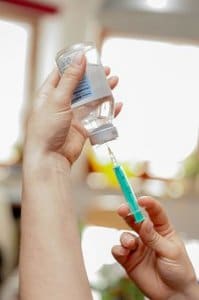 Please explain the Advisory Committee on Immunization Practices (ACIP)’s revised definition of evidence of immunity to measles, rubella, and mumps.
In the 2013 revision of its MMR vaccine recommendations, ACIP includes laboratory confirmation of disease as evidence of immunity for measles, mumps, and rubella. ACIP removed physician diagnosis of disease as evidence of immunity for measles and mumps. Physician diagnosis was previously not accepted as evidence of immunity for rubella. The decrease in measles and mumps cases over the last 30 years has made the validity of physician-diagnosed disease questionable. In addition, documenting history from physician records is not a practical option for most adults. The 2013 MMR ACIP recommendations are available at
Please explain the Advisory Committee on Immunization Practices (ACIP)’s revised definition of evidence of immunity to measles, rubella, and mumps.
In the 2013 revision of its MMR vaccine recommendations, ACIP includes laboratory confirmation of disease as evidence of immunity for measles, mumps, and rubella. ACIP removed physician diagnosis of disease as evidence of immunity for measles and mumps. Physician diagnosis was previously not accepted as evidence of immunity for rubella. The decrease in measles and mumps cases over the last 30 years has made the validity of physician-diagnosed disease questionable. In addition, documenting history from physician records is not a practical option for most adults. The 2013 MMR ACIP recommendations are available at 